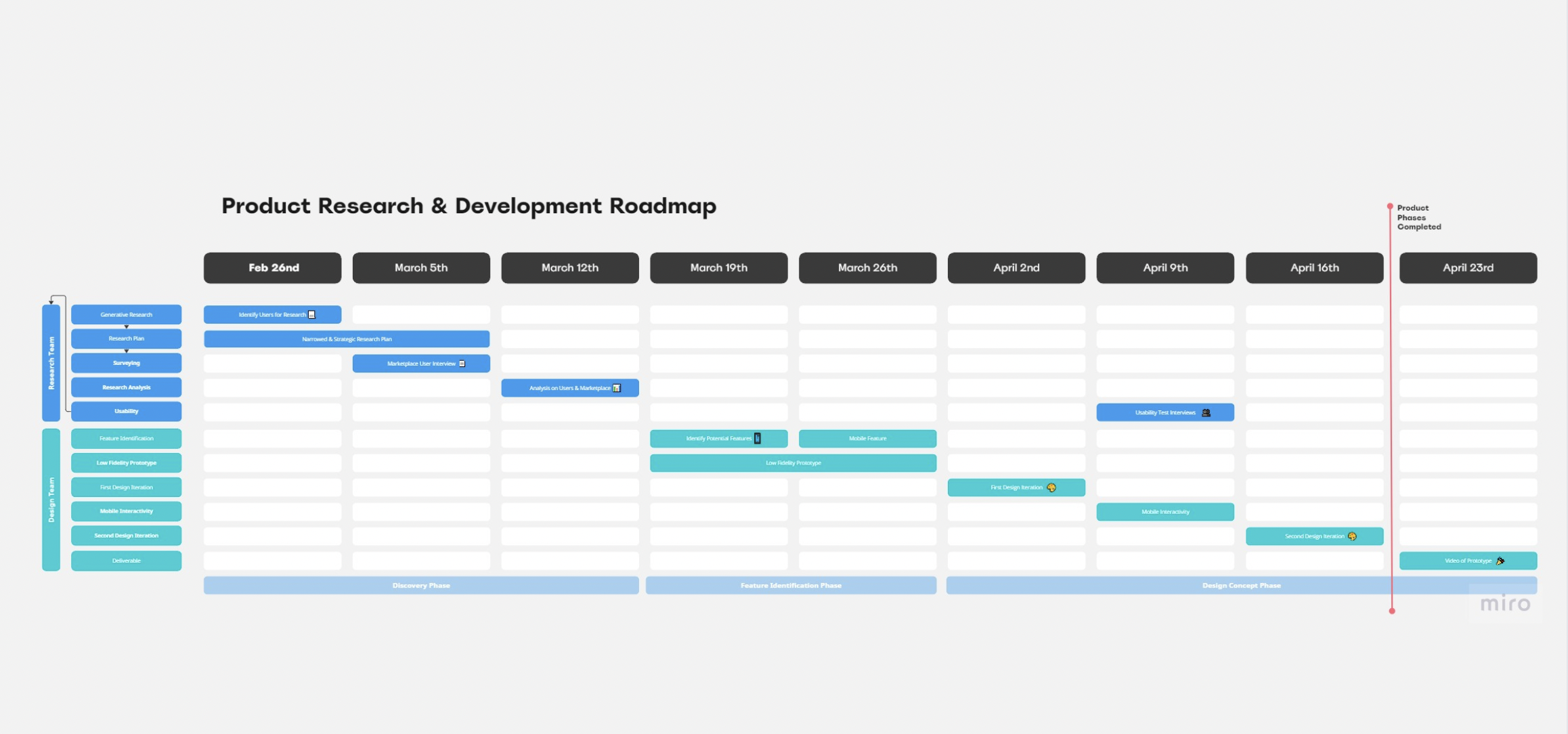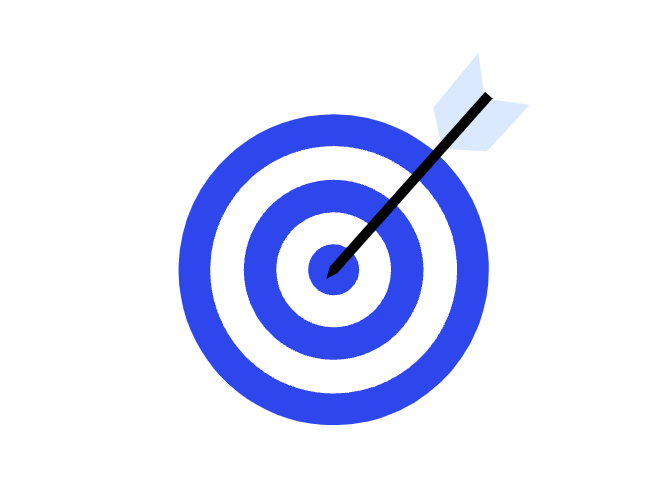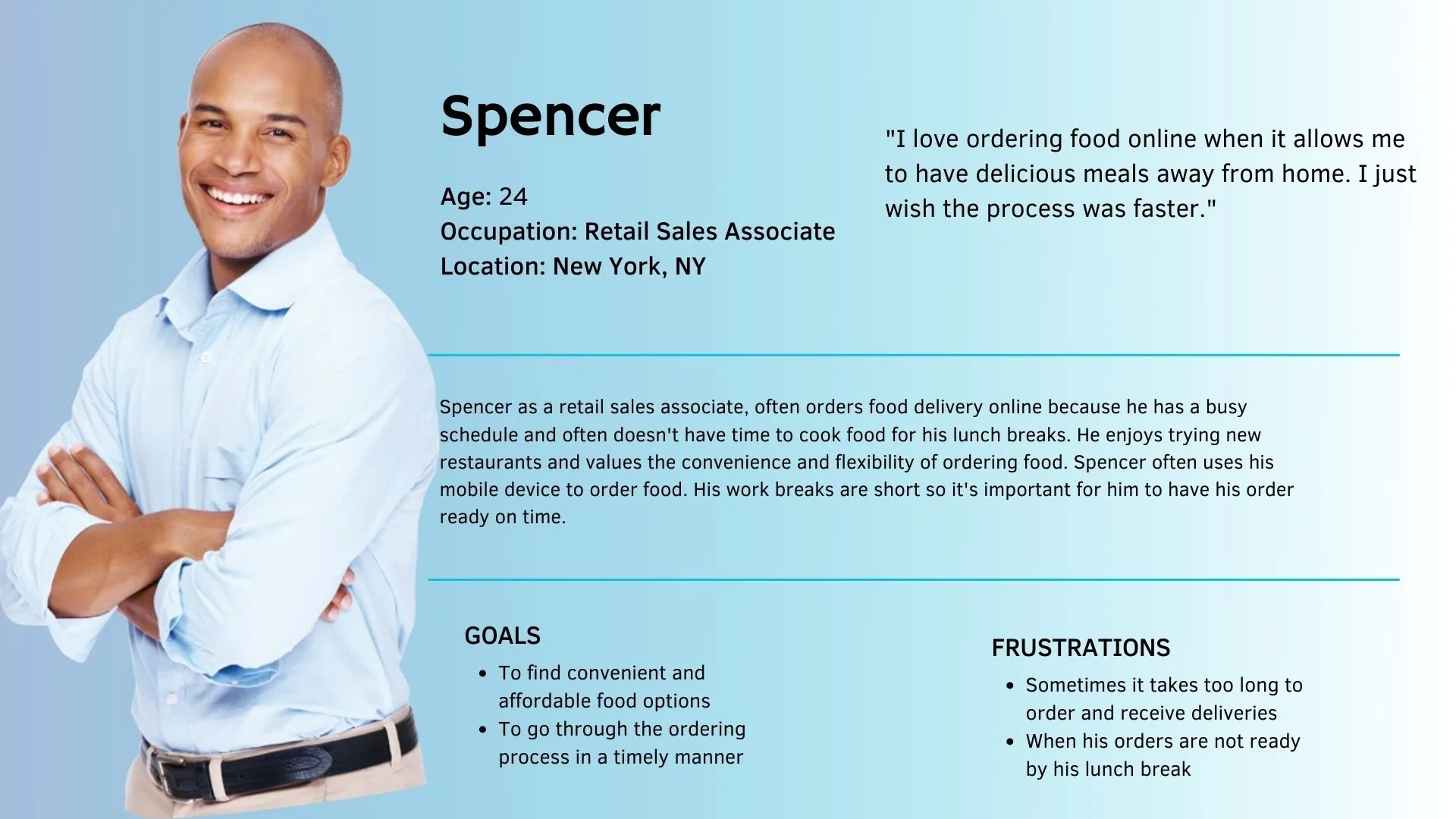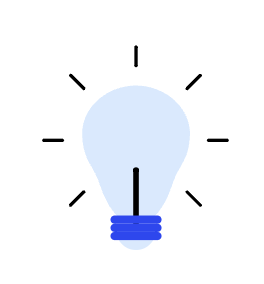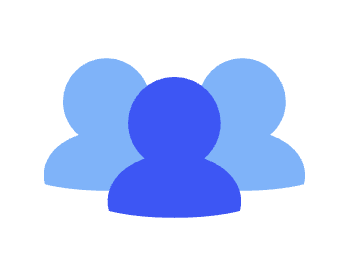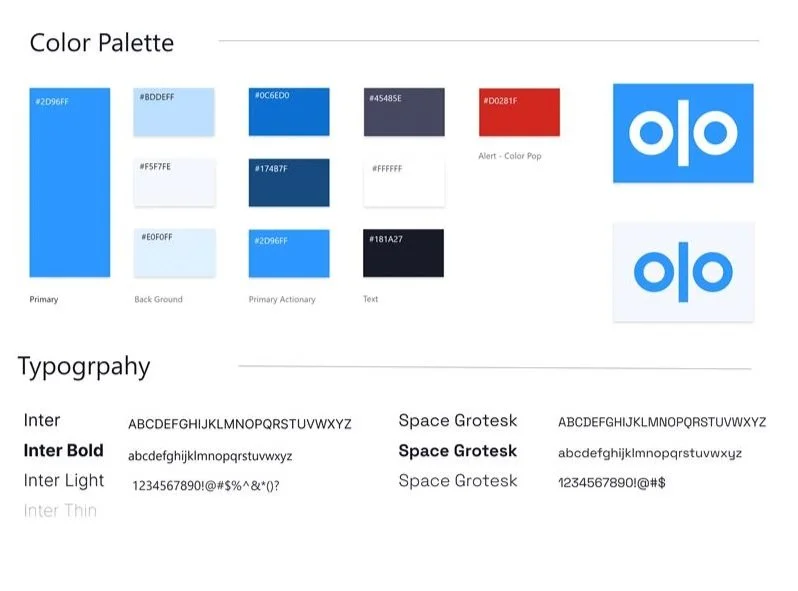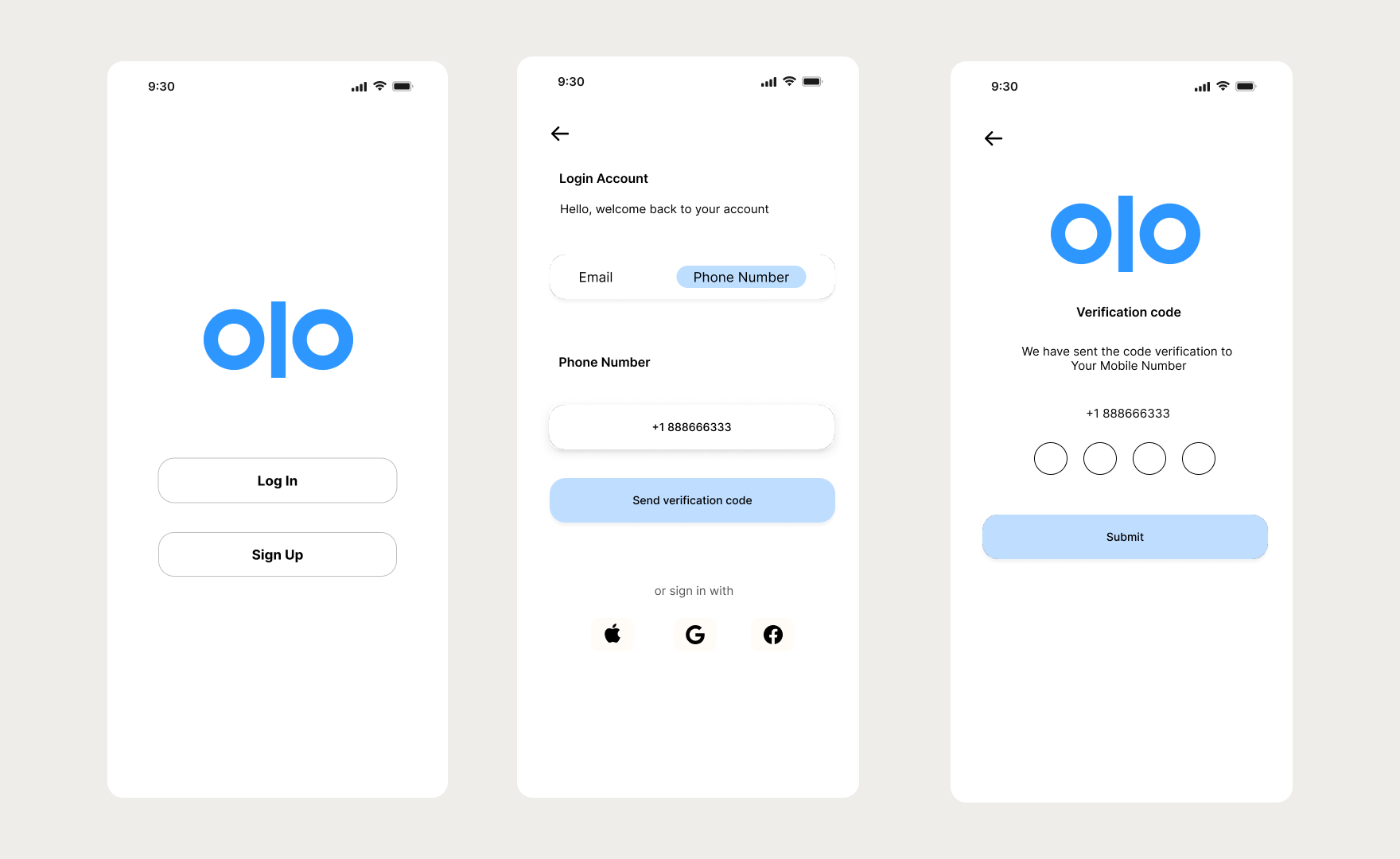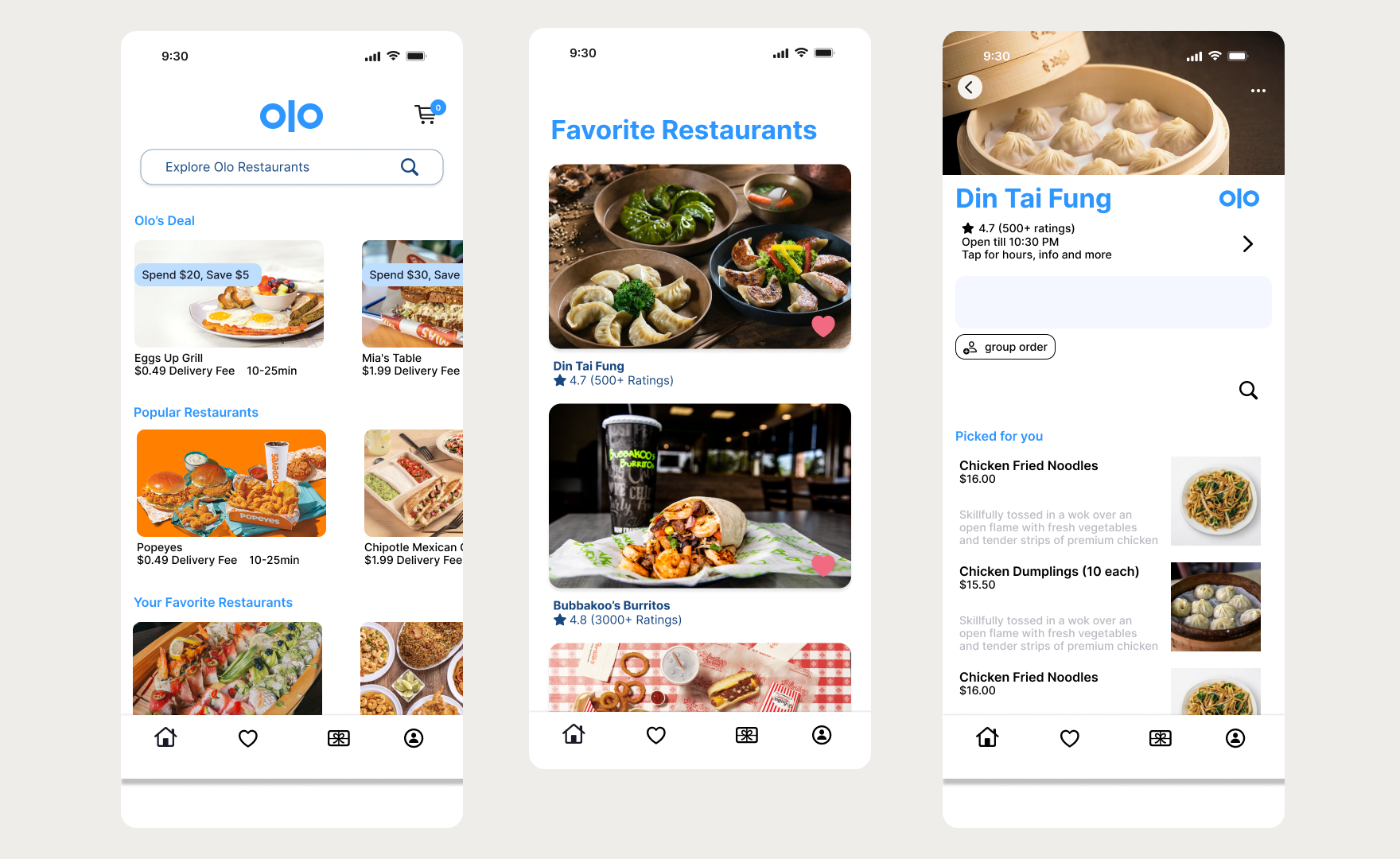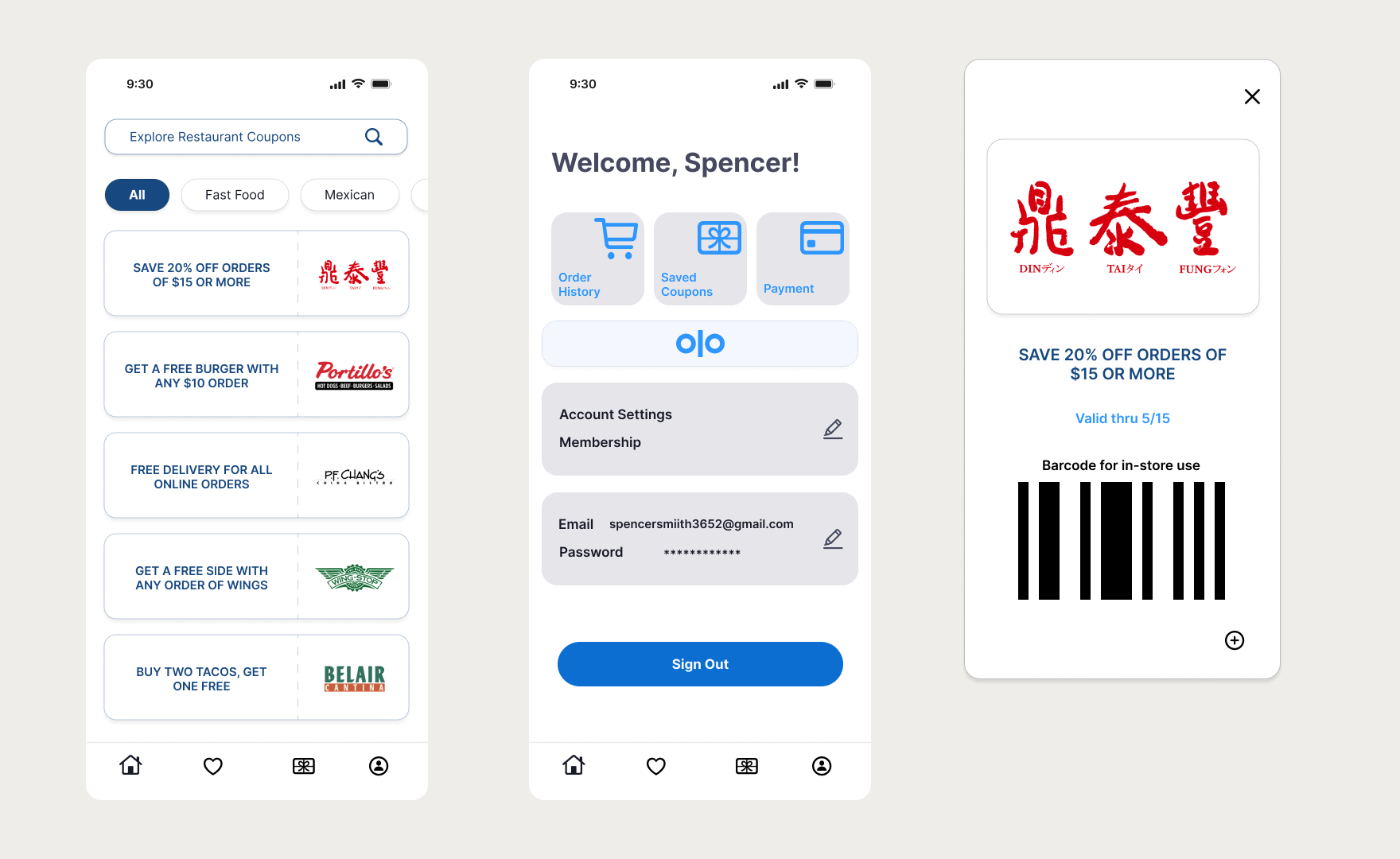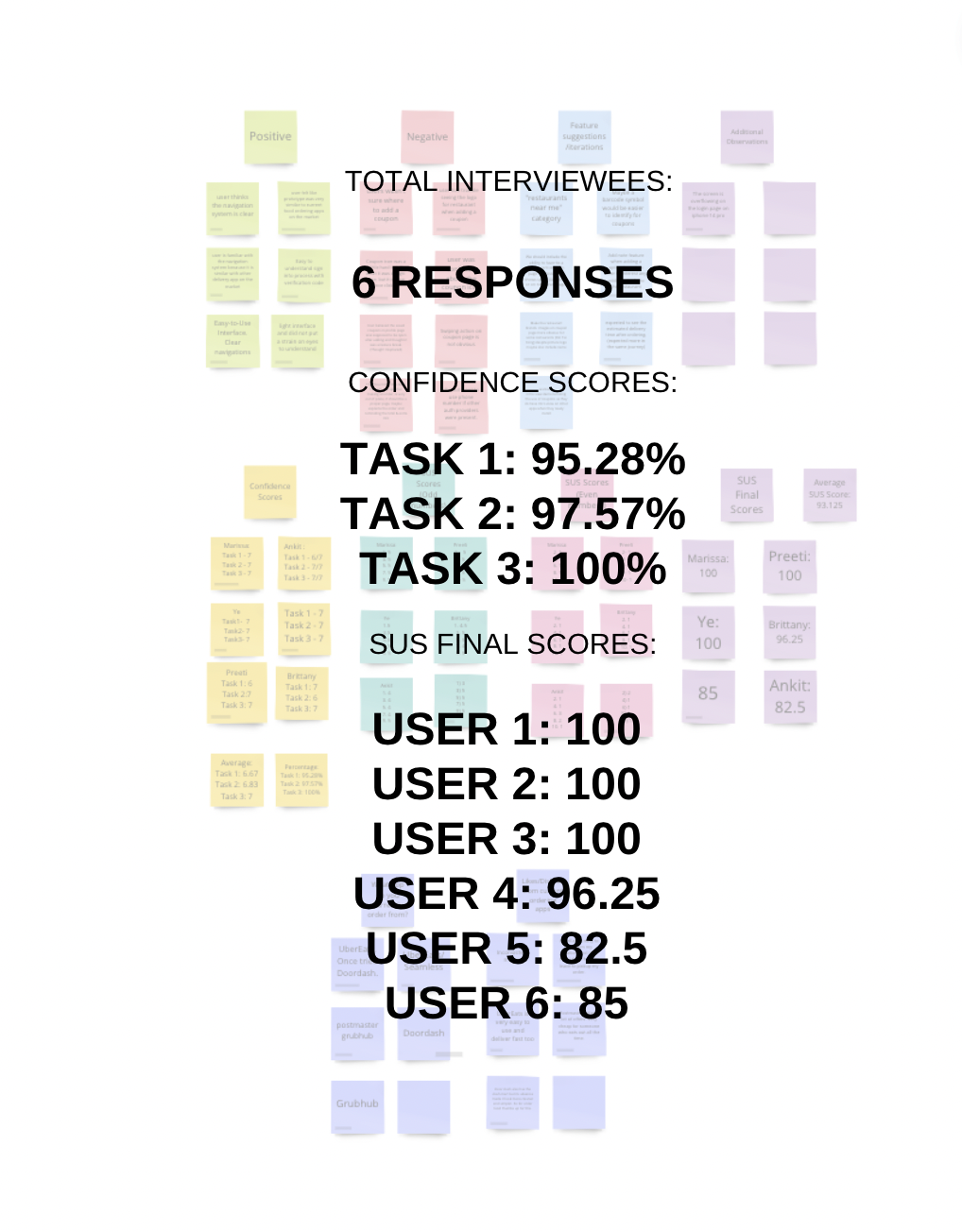OLO
Product Development UX/UI design
My Role: Product Design, Research
“Olo's mission is to revolutionize the way people order food, making it more convenient and efficient for both restaurants and customers alike.”
Project Opportunity
Increase Olo's Visibility
Ideate a potential restaurant marketplace
Increase Account Creation and User Retention
Enhance Olo's borderless features
Research existing user pain points and needs.
User & Business Value
OLO is an online ordering and delivery service for restaurants, and according to its goal statement, it wants to "make digital ordering accessible, simple, and profitable for restaurants of all sizes".
Mission
"Olo's mission is to transform the way people order food, making it more convenient and efficient for both restaurants and customers alike.”
Vision
Increase Olo's visibility among customers and other businesses:
Explore new features for existing products like Olo Borderless to increase customer adaptation
Explore the impact and feasibility of a new restaurant marketplace by Olo
Product Roadmap
Generative Study
Primary Objective: To investigate the impact of food delivery platforms on consumer behavior and identify key factors that influence satisfaction and frustration with these platforms among consumers.
Secondary Objective: To discover any potential incentives and rewards that would encourage users to register for Olo Borderless.
Participant goal
Collect 18 participants (3 each)
Target audience
Customers of Olo businesses (non-account holders
Customers who order from the marketplace
Current Olo Borderless customers
Recruitment method
Collect 18 participants (3 each)
Procedure
This study consisted of a prerequisite screener portion, a demographic survey, and two interview sections.
Research Results
After receiving 14 responses, the team collaborated via Miro Board to synthesize our findings, and the interview portions contributed to our tool and feature ideation.
The majority of those who are only purchasing from a restaurant use an online app to place their order.
Many people were not aware if a restaurant was using Olo, the Olo branding might not be as present on mobile as it is online
The most important part of everyone's experience was an easy-to-understand user interface that allowed them to use the app swiftly, and complete their order quickly.
Many users also appreciated a point system that rewarded their use of the app down the line.
User Persona
“I love ordering food online when it allows me to have delicious meals away from home. I just wish the process was faster.”
Design Development
Product Ideation
Product Design
Usability Study
Future Considerations
Product Ideation
The creation of a mobile application that serves as a hub for Olo affiliated restaurants.
Creating this product would also lean into participants’ preference for mobile ordering platforms, thus making them more likely to use it in a real world setting.
Main Product Features
Olo Borderless Login
Incorporated into our design to maintain consistency with the company's current login process
Provides a seamless transition to mobile, especially for current Olo account holders
Olo Coupon
Included to address the company's current interest in creating a rewards program
Provides an ideal incentive for using the app by offering deals specific to Olo account holders
Visual Design
Final Design
Prototype Walkthrough
Created from the perspective of a current Olo account holder
Usability Study
The study was conducted online with 6 participants in controlled settings through Zoom. The participants were recruited through social media and personal networks. The participants are customers of competitor apps or marketplace apps and between 18-35 years old. The test started with the “think out loud” method, where we asked the participants to walk through the application and were given 2 tasks to complete.
Primary Objective: Assess whether users can successfully and efficiently complete the designated tasks.
Secondary Objective: Evaluate the efficiency and effectiveness of the app for potential users.
Research Results
After receiving 6 responses, the team collaborated via Miro Board to synthesize our findings.
Positive feedback
Intuitive navigation system
A design that aligned with user expectations
A clear sign-in process
A visually appealing and user-friendly interface
Negative feedback
Confusion with the coupon design
Placement unclear swiping action
Out-of-place order placement pop up
Limited authentication options
Suggestions
Improve search functionality
Add a note feature for customization
Increase transparency and information for users
Improve the onboarding process
Stakeholder Feedback
Understanding our stakeholders' concerns will help us better develop a product that meets their business needs, in addition to meeting the needs of the company's consumers.
Will opposing brands feel comfortable sharing a platform together?
Is a mobile application really the best solution there is?
Is there another solution worth looking into?
Future Considerations
Gain a more intimate understanding of Olo through research with "Power Users" and other account holders
Learn more about the companies and restaurants partnered with Olo to understand their needs and concerns
Reevaluate the benefits of creating a new product versus redesigning current product features
Field Studies
How do actual Olo users interact with Olo?
Contextual inquiry
What do Olo's business partners and current customers view as a viable solution?
Concept testing
How do actual Olo users interact with Olo?
Thematic Analysis
What common themes arise during our discussions with Olo users?
Thank you for your time!

